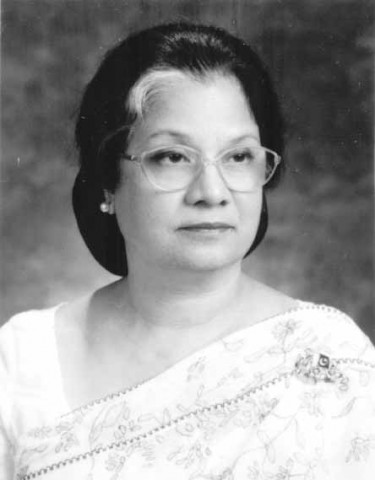More power to the provinces: Be wary of devolution, dismantling warns former law minister
There will be disharmony, calls for independence, says Barrister Shahida Jamil.

The provinces have long pressed for more administrative control, and especially money. This wish was granted when the concurrent list was abolished — certain departments were handed over to Sindh and the ‘Centre’ or federal government kept others. For the most part, people have celebrated this devolution. But on Saturday, a critic pointed out some possible worries.
“This is not provincial autonomy, but a dismantling of the federal government’s functions,” remarked former federal law minister Barrister Shahida Jamil in her keynote speech on the eve of the birth anniversary of Fatima Jinnah — an event organised by the Quaid-e-Millat Liaquat Ali Khan Memorial Committee which chose the topic of federalism, provincial autonomy and local government.
According to Jamil, abolishing the concurrent legislative list will create disharmony among the provinces, which may demand full independence in the future. She explained that the federal government was a supervising authority but after the 18th Amendment changes were made the powers of central government were given to the provinces. Now we will see the consequences of abolishing the concurrent list.
The committee’s Mahfooz-un Nabi Khan commented on how people of the privileged class, sitting in the corridors of power, were a barrier to devolving power to the grass-roots level. “These influential people want to continue the status quo and do not want to see elected representatives from the lower middle class,” he said.
“We need actual provincial autonomy, which is only possible when people from the labour class and farmers are elected from union council to parliament.”
He said that leaders of the ruling party criticised the local government ordinance of 2001 because it was promulgated by General Pervez Musharraf, who according to them was dictator. But they are praising the local government system of 1979 which was introduced by General Zia-ul Haq.
Masoor Hussain, who was the private secretary for Fatima Jinnah, elaborated on how she had contested the elections against General Ayub Khan on the instigation of a joint opposition. He said that Karachi was named the “City of lights” after Jinnah’s election campaign started as she was given the lantern election symbol. “People in every nook and corner started lighting lanterns in their areas, as a result of which Karachi was identified as the city of lights,” he said.
Engineer Shamir Khan, who was the secretary general of the Muslim League Council in Karachi and played a pivotal role in Jinnah’s election campaign, Haris Kazmi, Shahid Hussain, Atif Hussain also spoke.
Published in The Express Tribune, July 31st, 2011.


















COMMENTS
Comments are moderated and generally will be posted if they are on-topic and not abusive.
For more information, please see our Comments FAQ